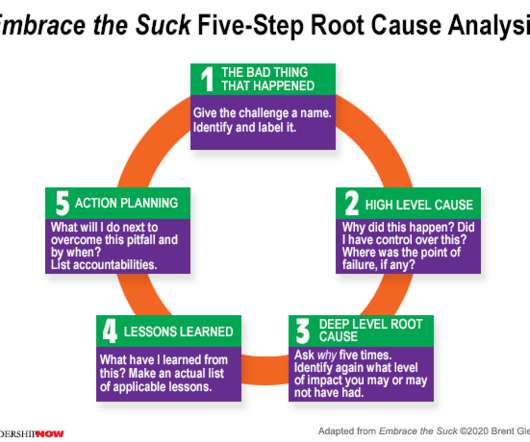Root Cause Analysis is Over-Rated – What to Do Instead
Leadership Freak
AUGUST 17, 2021
A car that won’t start requires root cause analysis. But people development and culture building may not. We spend too much time asking ‘why’ and not enough time exploring ‘what’ If your team… Continue reading →

































Let's personalize your content